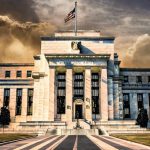
Move on, for it takes very little effort to stand still and do nothing. Sol Palha
Random Thought Unleashed: Decoding the Subprime Mortgage Crisis
To date, over 36 Mortgage lenders have gone out of business and today, it looks like it’s lights out or close to lights out for New Century, the country’s second-largest subprime mortgage lender. For the past two years, we have been warning that specific individuals who only did not have the money to put down for a house should not have been in this market. We also informed that these creative devilish new mortgages invented with 0% to 2% teaser interest rates, interest only and so on were dangerous instruments as it was the equivalent of telling a child to put out a fire with a gasoline can. We stated that the reckoning was 12-24 months away then. That day is here today, and it will only worsen.
Over 50% of Foreclosures come from the subprime market.
These individuals bought these houses for little to no money, hoping to jump on the get-rich real estate gravy train. They were dreaming about locking in gains of 20% plus a year; many of these houses have lost anywhere from 10-25% of their values, and as envisioned, the mortgages have reset. In some cases, payments have jumped as much as 100% and are faced with lower prices and mounting new monthly payments. These homeowners are just walking away from their mortgages.
This problem will slowly trickle over too many of the larger banks. A clear-cut recent example is HSBC. Once again, we advise all our subscribers to stay far away from the housing sector, as we have been faithfully doing for over two years. The blood-letting has only just begun.
A Random Thought: Dire Consequences of Mortgage Crisis
New Century Financial Corp. (NYSE: NEW – news), the largest US subprime mortgage lender, faces imminent bankruptcy as lenders withdraw financing. With depleting cash reserves and $8.4 billion in immediate obligations, the company’s collapse looms. This crisis extends beyond New Century Financial Corp., affecting lenders who granted loans to high-risk borrowers, many of whom are defaulting. Analysts warn of broader economic repercussions, potentially unsettling a significant portion of the US economy. Investors, including pension funds, who invested in questionable home loan-backed securities will likely suffer. The subprime mortgage crisis highlights the unpredictable and chaotic consequences that can arise from even a fleeting thought.
If home prices remain flat this year and next
Lehman Brothers analysts from Countrywide Financial Corp warn of a substantial mortgage default threat, with $225 billion at stake. This alarming figure poses a genuine danger to the housing market, burdening even creditworthy borrowers. Concerned, the analysts highlight an expected default rate of 1.5 million to 2 million units, exacerbating an already soft housing market. Adding to the apprehension, Countrywide Financial Corp., the largest US mortgage lender, predicts adverse effects on their near-term profitability due to the subprime turmoil.
Consequently, their stock plunged by 2.7%. These developments underscore the gravity of the subprime crisis and its potentially far-reaching consequences, emphasizing the fragile balance that underpins the housing market and the broader economy. Despite experts’ claims that the worst was over, we persist in stating that the worst is yet to come. The cleansing process is only halfway through, and more devastation awaits. Individuals who should have never bought houses now face the daunting task of meeting monthly payments. The next stage will be grappling with where they will find a place to live.
Several Major lending institutions might fail.
As far as the lending institutions go, we expect several more of them to fold, and at least 1-3 banks will take a massive beating; one that comes readily to mind is HSBC. The story below further highlights how subprime was a stupid investment to get involved in. The punishment for foolish investments is extreme pain, and from a pain perspective, we are just on the paper-cut stage and we need to to the loss of a limb or being severely wounded scene; its safe to say that we still have a long way to go before things calm down. The story below further illustrates how rapidly the situation is deteriorating.
Subprime Mortgage Industry Faces Financing Challenges
The subprime mortgage business encountered another setback as Accredited Home Lenders announced its urgent need to secure alternative financing due to mounting pressure from creditors seeking additional funds to offset surging loan defaults. This development adds to the mounting challenges faced by the nation’s second-largest lender to individuals with poor credit. New Century Financial is currently in a precarious position, striving to stay afloat after its banks abruptly terminated its financing. Analyst Chris Brendler of Stifel Nicolaus grimly predicts an imminent bankruptcy filing as the logical outcome when connecting the dots. The ramifications of this meltdown can potentially exacerbate the ongoing housing slump, flooding the market with foreclosed homes and eliminating risky borrowers from the pool of potential buyers. As appraiser, George Hatch aptly remarks, “Every party has its hangover.”

Subprime Mortgage Crisis Unveils Distress, Shaping Personal Narratives
As the subprime mortgage crisis persists in headlines, it brings personal stories that humanize the overarching narrative. Andy Sobel, a community worker from San Diego, experienced such a tale. Despite possessing good credit, a decent job, and modest savings, Sobel felt compelled to stretch his finances to acquire a home in the sizzling San Diego housing market in 2004.
Three years later, Sobel lost his home and savings and encountered a sizable tax bill due to a failed subprime mortgage held by Countrywide Financial Corp. (NYSE: CFC – news) — a loan he firmly believes he should have never been granted. Sobel’s experience serves as a poignant reminder that the adversities of variable-rate home loans impact individuals far beyond those with spotty borrowing records.
Legal Battles Unveil Deception: Massachusetts Couple Takes Action Against Ameriquest Mortgage Co.
In Massachusetts, Thomas Hilchey and Robin Crevier are taking legal action against Ameriquest Mortgage Co. They accuse the lender of deceit and failure to provide required loan documents and disclosures. These cases are expected to continue amidst the ongoing crisis.
Analysts have differing opinions on the broader impact of these issues beyond the subprime sector. However, economists agree on one crucial point: the resolution of the housing debacle will significantly impact the overall health of the US economy.
Random Thought: Ignorance is no excuse
One should continually educate oneself when making the second most important decision in their life. We will talk about the first one sometime next week, and we are sure that most of you will be drawing the wrong conclusion until then.
Everyone seems to be getting hit now, as greed knows no limits. The masses never learn from history, regardless of whether they have a high IQ or an almost non-existent one. The critical point is that the mass mindset refuses to study history and learn from it. Remember this and drill it into your head and the heads of your loved ones; never buy into something when everyone thinks it will go up.
From Risk to Caution: Declining Trends in Subprime Mortgage Issuance
1. Recovery from the 2008 Financial Crisis: Following the 2008 crisis, the housing market and financial institutions gradually recovered. Various measures were implemented to stabilize the market, including stricter lending standards and increased regulatory oversight.
2. Decrease in Subprime Mortgage Issuance: The issuance of subprime mortgages, which are loans given to borrowers with lower creditworthiness, has significantly decreased since the crisis. Lenders have become more cautious in extending credit to high-risk borrowers.
3. Improved Mortgage Delinquency Rates: Mortgage delinquency rates, which indicate the percentage of borrowers behind on their mortgage payments, have generally improved since the crisis. This can be attributed to the overall economic recovery and stricter lending practices.
4. Impact of COVID-19: The COVID-19 pandemic had a significant impact on the housing market and the economy as a whole. Government interventions, such as mortgage forbearance programs and stimulus measures, helped mitigate the potential impact of mortgage defaults and foreclosures.
5. Rising Home Prices: Home prices have increased steadily in many regions since the crisis. Low-interest rates, limited housing supply, and increased demand have driven this.
It’s important to note that the subprime mortgage crisis was a complex event with far-reaching consequences. While the housing market and financial institutions have shown signs of recovery, monitoring ongoing developments and consulting reliable sources for the most up-to-date information on this topic is crucial.
Faq on Random Thought Article
Q: When did the housing market and financial institutions start recovering from the 2008 financial crisis?
A: Following the 2008 crisis, the housing market and financial institutions gradually recovered.
Q: What measures were implemented to stabilize the housing market?
A: Various measures, including stricter lending standards and increased regulatory oversight, were implemented to stabilize the housing market.
Q: Has the issuance of subprime mortgages decreased since the crisis?
A: Yes, the issuance of subprime mortgages, which are loans given to borrowers with lower creditworthiness, has significantly decreased since the crisis.
Q: Have mortgage delinquency rates improved since the crisis?
A: Yes, mortgage delinquency rates, which indicate the percentage of borrowers behind their mortgage payments, have generally improved since the crisis.
Q: What impact did the COVID-19 pandemic have on the housing market?
A: The COVID-19 pandemic had a significant impact on the housing market and the economy as a whole. Government interventions, such as mortgage forbearance programs and stimulus measures, helped mitigate the potential impact of mortgage defaults and foreclosures.
Q: Have home prices been rising since the crisis?
A: In many regions, home prices have been increasing steadily since the crisis. Low-interest rates, limited housing supply, and increased demand have driven this.
Q: What should I keep in mind regarding the subprime mortgage crisis?
A: The subprime mortgage crisis was a complex event with far-reaching consequences. While there have been signs of recovery in the housing market and financial institutions, staying informed and consulting reliable sources for up-to-date information on this topic is essential.
Men hate the individual whom they call avaricious only because nothing can be gained from him. Voltaire 1694-1778, French Historian, Writer
The article was originally published on June 24, 2015, and has been updated as of March 2022.
Other Stories of Interest
Why Mechanical and Technical Analysis Systems Fail
The Limitations of Trend Lines










